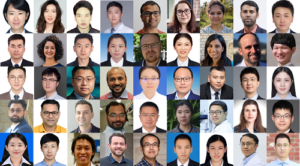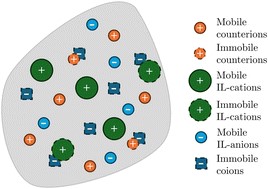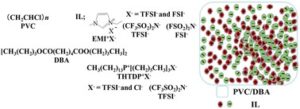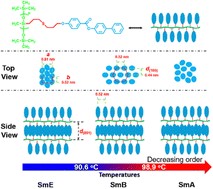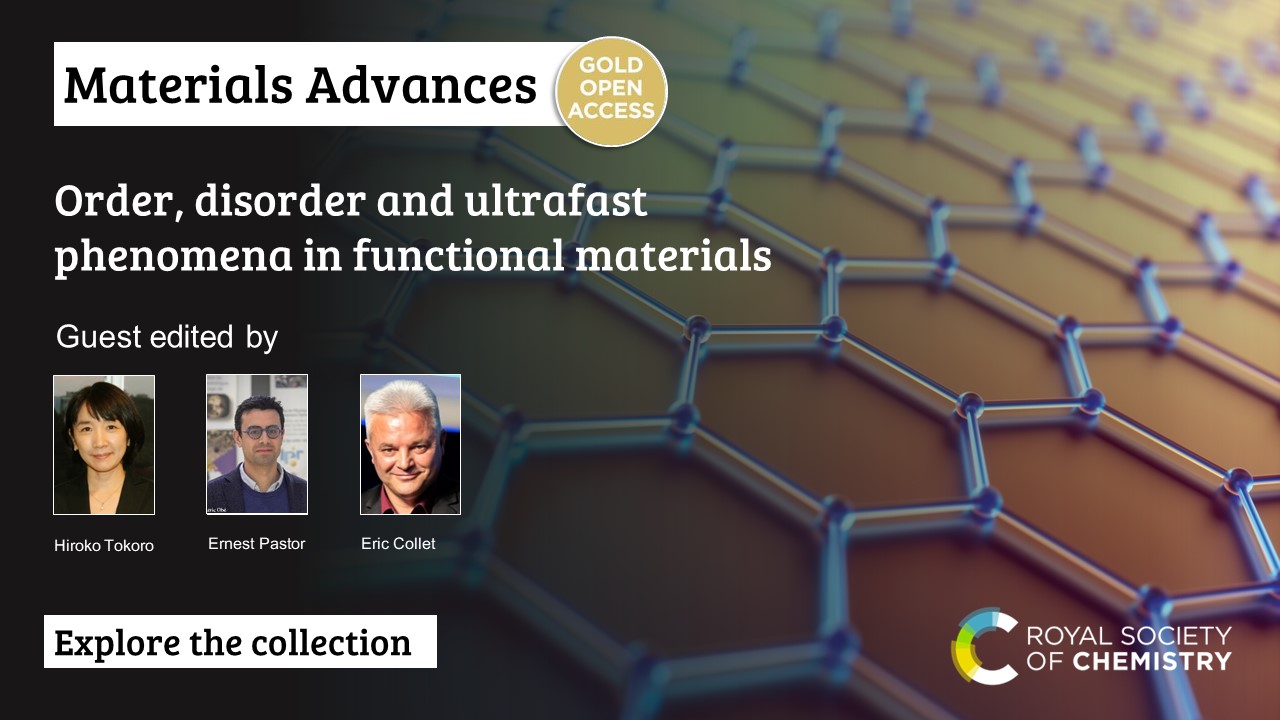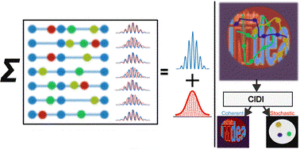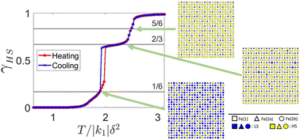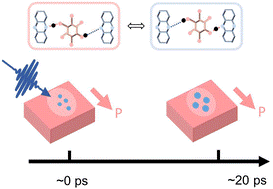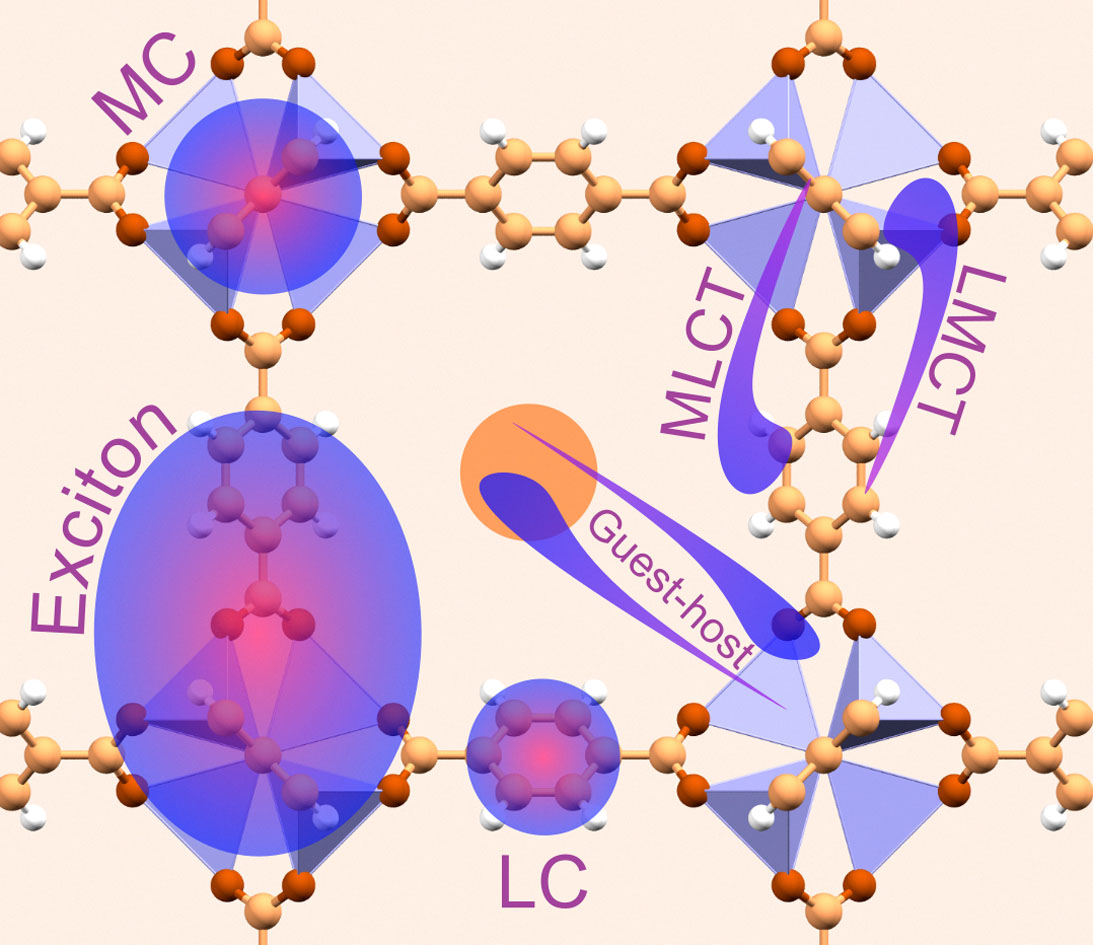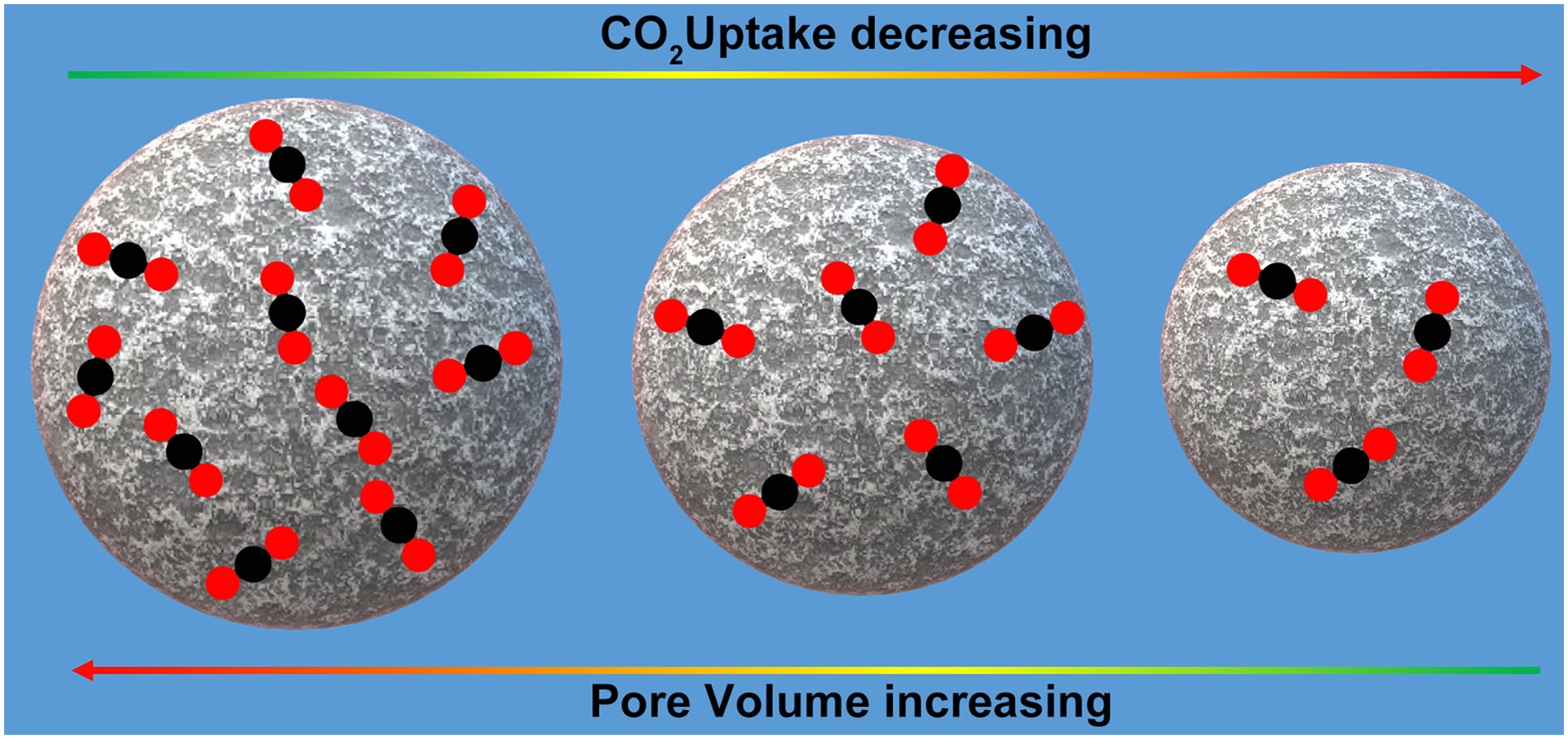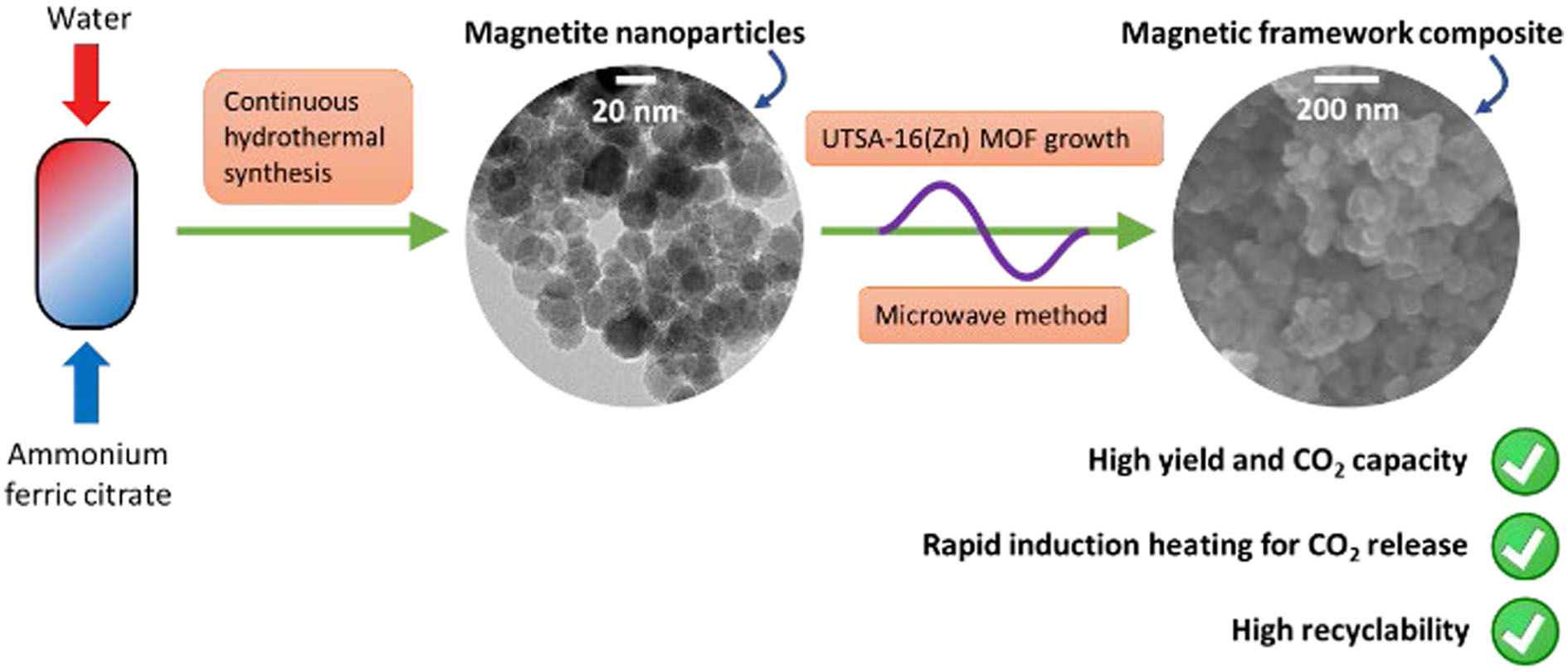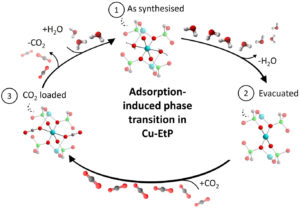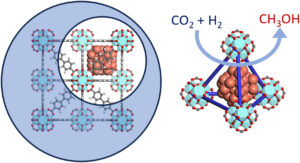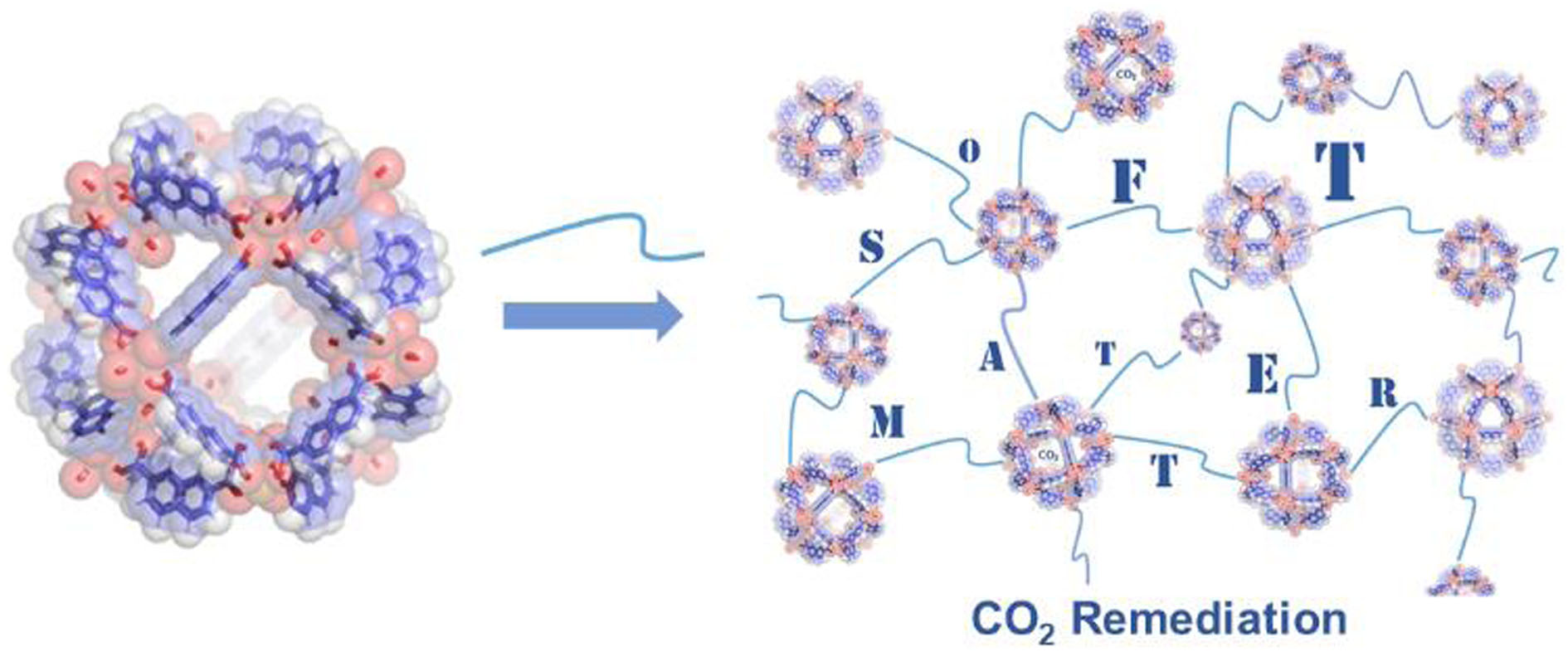Meet the early contributors to the J Mat Chem A, B and C Emerging Investigator collections
This year marks 10 years of our Emerging Investigators, an annual collection which was launched in 2014 to showcase high quality research being carried out by international researchers in the early stages of their independent careers. In celebration of this milestone, this special anniversary series features new exciting work from contributors to the early Emerging Investigator issues. We hope you enjoy discovering how their research has progressed over the last 10 years.
We also caught up with some of the contributors to hear their thoughts on how their work has evolved since they were featured in the Emerging Investigator collection, what advice they would give to current Emerging Investigators and what inspired them to pursue their research. Discover their answers below!
**
Alexey Ganin, University of Glasgow
 |
Alexey Ganin, MRSC received his PhD from the Max Planck Institute for Solid State Research in Stuttgart, Germany. After his postdoctoral research with Prof. Matt Rosseinsky, FRS on intercalation chemistry of strongly electron corelated materials he joined School of Chemistry, University of Glasgow in 2013. Since then, he has been leading Glasgow ElectroChemistry On Solids (GECOS) research group, which is focused on application of solid-state materials in energy applications and storage. AYG’s expertise in solid state chemistry, combined with his extensive knowledge of electrochemistry, enables his group to discover innovative solid-state materials and implement them in electrochemical systems to either convert electricity into renewable fuels or store it in batteries. |
What inspired you to pursue a career in your specific field of research?
Coming from a family of academics, I was fortunate to be immersed in an environment that valued education and intellectual exploration to begin with. Pursuing a PhD degree felt like a natural path, almost a given rather than a specific decision driven by inspiration. Solid State Chemistry appealed to me because it combined the two subjects I was most drawn to in school: chemistry and mathematics. The field offered a way to apply these disciplines practically, helping me to explore complex concepts with tangible outcomes. This blend of familiarity and challenge made a natural fit.
You were previously featured in the Emerging Investigators collection – how has your research progressed over the last 10 years?
Over the last decade, my research has evolved considerably, shaped by the ideas and strengths of those who’ve joined my group. I encourage my team members to bring their own insights, as long as they align with our central goal of advancing solid-state materials and electrochemistry for energy applications. This has naturally led to shifts in direction over the last 10 years, which I view as positive progress. I’m grateful for how each group member, past and present, has contributed to the growth and refinement of our work, and I look forward to seeing how future members will continue to drive us forward.
What advice would you give to current Emerging Investigators who hope to make a significant impact in their respective fields over the next 10 years?
My advice is to focus on publishing consistently while refining the quality of each piece of research. Practise writing each paper with fresh eyes, as if it’s your first, and avoid chasing perfection—it’s more productive to commit to steady, thoughtful work. Remember, with time and experience, your skills will naturally improve, so trust the process. Additionally, approach peer review with respect and empathy. Recognise the effort that went into each paper, and strive to be constructive. The goal of reviewing is to help authors strengthen their work, not merely to identify flaws.
What were the biggest challenges you have faced over the last 10 years as your career progressed?
As my career has progressed and my research group has expanded, one of the biggest challenges has been managing time effectively and balancing responsibilities. It’s often difficult to step back from lab work, which I genuinely enjoy, and trust others to carry out experiments. Delegating effectively, while still providing proper guidance, has required me to shift my mindset. I’ve had to gradually ease out of the day-to-day lab work, recognising that supporting and empowering my team is now just as essential. Adjusting to this more supervisory role, while letting go of a bit of my own “lab perfectionism” has been tough and it is still an ongoing process.
Read Alexey Ganin’s article:
Reversible K-ion intercalation in CrSe2 cathodes for potassium-ion batteries: combined operando PXRD and DFT studies
J. Mater. Chem. A, 2024, Advance Article, DOI: 10.1039/D4TA05114A
**
Vivek Polshettiwar, Tata Institute of Fundamental Research (TIFR), Mumbai
| Prof. Vivek Polshettiwar is a distinguished scientist and professor at TIFR Mumbai, specializing in catalysis and nanomaterials to address climate change. With a profound commitment to environmental sustainability, his research focuses on CO2 conversion to fuels and chemicals, using concepts of defects, strong metal-support interactions (SMSI), and plasmonics. He has led pioneering work on catalysts like plasmonic black gold and defect-engineered systems for solar-driven chemical transformations. Prof. Polshettiwar’s career spans prestigious institutions, including KAUST, TIFR, and international stints in France and the USA, where he honed his focus on high-quality, impactful research. His contributions have earned him numerous accolades, such as India’s highest award in science, “Shanti Swarup Bhatnagar Award”, Falling Walls Winner in Physical Sciences, IUPAC-CHEMRAWN VII Prize for Green Chemistry as well as fellowships from the Indian National Academies. Beyond his research, Prof. Polshettiwar is actively engaged in advancing collaborative efforts to address climate change. He is the founder of CO2India, a network with over a thousand members focused on developing and promoting CCUS (Carbon Capture, Utilization, and Storage) technologies. Through his research and leadership, he continues to contribute significantly to India’s efforts in climate action and sustainable energy solutions. |
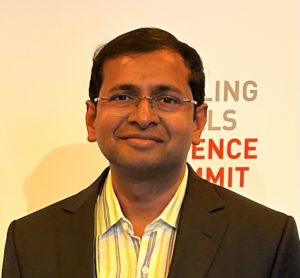 |
What inspired you to pursue a career in your specific field of research?
My journey into catalysis and CO2 conversion was inspired by a combination of my deep-rooted interest in chemistry and the pressing need to address global environmental challenges. Growing up with limited resources and seeing firsthand the impact of pollution on society, I felt a responsibility to focus my career on something that could create tangible benefits for society. My early studies and the challenges I faced, including limited access to advanced research facilities, fueled my determination to find innovative solutions within the constraints.
You were previously featured in the Emerging Investigators collection – how has your research progressed over the last 10 years?
When I started my group at TIFR in 2013, around the time I was recognized as an Emerging Investigator by JMCA, our focus was primarily on CO2 capture. We explored various materials and developed innovative sorbents specifically for CO2 capture, laying a strong foundation in CO2 sorbents. During this period, we also pioneered the development of dendritic fibrous nanosilica (DFNS) and its hybrid materials-based catalyst, utilizing for a wide range of applications. However, over the years, we recognized that CO2 capture alone does not address the full scope of the climate challenge. Conversion of CO2 into value-added products became the key step, aiming to transform captured CO2 into something useful and sustainable and to achieve cyclic carbon-economy (India’s net zero dream). Our work has thus evolved from capturing CO2 to converting it into valuable products, pushing forward both fundamental research and practical solutions that address climate change.
What advice would you give to current Emerging Investigators who hope to make a significant impact in their respective fields over the next 10 years?
To current Emerging Investigators aiming for a long-term impact, my first piece of advice is to remain focused on quality rather than quantity in research. Early in my career, I learned that it’s tempting to chase the metrics or the “hot” topics, but impactful science often comes from thoughtful, deep exploration of a problem rather than following trends. Commit to rigorous, quality-driven research—even if it means fewer publications—because this approach builds a solid foundation that naturally attracts recognition.
Secondly, remain adaptable. Research directions can shift as we learn more and as societal needs evolve. For example, my group initially focused on CO2 capture, but over time, I realized that conversion of CO2 into value-added products was a more effective strategy to address climate change. Be open to re-evaluating your research focus and methodology as new insights and technologies emerge.
Finally, prioritize collaboration and mentorship. Science today is inherently interdisciplinary, and building a network of collaborators can expand the reach and depth of your work. At the same time, guide and empower your students and team members to innovate. The impact we hope to make over the next decade rests on both the discoveries we pursue and the community of researchers we cultivate.
Read Vivek Polshettiwar’s article:
One-pot synthesized plasmonic black gold nanoparticles for efficient photocatalytic CO oxidation
J. Mater. Chem. A, 2024, 12, 27235-27245, DOI: 10.1039/D4TA05117C
**
Yun Jung Lee, Hanyang University
 |
Yun Jung Lee is a professor of department of energy engineering at Hanyang University (HYU), South Korea. She received her B.Sc and M. Sc at Seoul University in 1998 and 2000, repectively, South Korea, and completed Ph.D. at the Massachusetts Institute of Technology, U.S.A in 2009. After postdoctoral research at Pacific Northwest National Laboratory, U.S.A, she joined HYU in 2011. Her research interests include designing advanced nanomaterials and architecture for next generation energy conversion/storage devices. Based on the fundamental study on electrochemical and electro-chemo-mechanical phenomena in diverse energy storage systems, her group currently focuses on novel electrode and architecture employing the nanoscale synthesis strategies. She was a recipient of Woman scientist/engineer of the year award, academic division from Korean Ministry of Science & ICT (2017), and Korea Toray Fellowship from Korea Toray Science Foundation (2018). She is a fellow of the Royal Society of Chemistry, an advisory board member of Journal of Materials Chemistry A and Materials Advances, and a scientific editor of Materials Horizons. |
What inspired you to pursue a career in your specific field of research?
Exploring ways to enhance energy storage performance by tuning material properties and developing novel configurations has always captivated me. I believe that next-generation energy storage devices—where the chemistry and mechanisms differ radically from conventional lithium-ion batteries—present an exciting opportunity. My multidisciplinary training has taught me to think outside the box, positioning me uniquely among researchers in this evolving field.
You were previously featured in the Emerging Investigators collection – how has your research progressed over the last 10 years?
After being featured in the Emerging Investigators collection, my research advanced toward next-generation energy storage devices, including all-solid-state and flexible batteries. In these emerging systems, both novel materials and innovative configurations are essential to achieving practical performance. Through this research, I gained deeper insights into the role of electro-chemo-mechanical properties and achieved significant milestones. My contributions led to my roles as an advisory board member for the Journal of Materials Chemistry A and Materials Advances, and as a scientific editor for Materials Horizons. The Emerging Investigators collection marked a pivotal first engagement with the RSC.
What were the biggest challenges you have faced over the last 10 years as your career progressed?
The greatest challenge in my career development over the past decade has been balancing my responsibilities as a working mother—managing both childcare and household duties alongside my professional work. Focusing on my career and performance while not neglecting my role as a mother requires a great deal of effort. I needed to increase my efficiency at work, and in terms of childcare and housework, it wasn’t just my own efforts but also the support and cooperation of my family that were crucial. Maintaining a harmonious relationship with my family without conflict also required much thought and consideration. This is likely one of the biggest challenges that most working mothers face in their career development.
Discover Yun Jung Lee’s research:
High-capacity ultra-thin flexible lithium-ion batteries with enhanced rate capability by a cast all-in-one cathode-separator-anode monolith
J. Mater. Chem. A, 2024,12, 25056-25066, DOI: 10.1039/D4TA04682J
**
Thomas Stergiopoulos, Institute of Nanoscience and Nanotechnology, NCSR Demokritos
| Dr Thomas Stergiopoulos (Chemist) conducted his pHD thesis in the field of dye-solar cells working in the group of P. Falaras at the National Centre for Scientific Research Demokritos (NCSRD), while being a visiting researcher for one year at the CNRS-University Pierre et Marie Curie (Paris, France). At 2014, he moved to the University of Oxford (Physics Department) to work on perovskite solar cells with Prof. Henry Snaith under a Marie Curie IEF fellowship grant until 2015 and he then became a Long-term Visiting Researcher for the following 5 years. He then joined the Department of Chemistry at the Aristotle University of Thessaloniki as a lecturer (until 2017), and then as an Assistant Professor until February 2022. He is currently a Senior Researcher at the Institute of Nanoscience and Nanotechnology in NCSR Demokritos with his own group working on perovskite and chalcogenide opto-electronic devices (solar cells, LEDs and memristors). His research is funded by a Consolidator ERC grant (MIX2FIX) to address the challenge to synthesize optoelectronically-active, inorganic-organic chalcogenide perovskites. |
 |
What inspired you to pursue a career in your specific field of research?
Working on big challenges of our society was my main motivation. The “energy issue” is definitely one of them. In this direction, free and abundant energy coming from the sun (aka photovoltaics) was and still is a major solution. This is the big picture. Now, If I want to talk about the perovskite (or perovskite-inspired compounds) optoelectronics, the inspiration came from my 2-year work in Clarendon Laboratory, where fantastic collaborators and bright minds have entered me in this fascinating field.
You were previously featured in the Emerging Investigators collection – how has your research progressed over the last 10 years?
Ten years ago, I was struggling creating my own group at the University of Thessaloniki. My research was focusing solely on metal (lead and tin) halide perovskite solar cells. During last years and due to my movement to NSCR Demokritos and appropriate funding and availability of facilities, I have extended my research to several materials such as AgBiS2, Sb2S3, CuInS2, BaZrS3 etc. and devices such as LEDs.
What advice would you give to current Emerging Investigators who hope to make a significant impact in their respective fields over the next 10 years?
I believe for new PIs, there is a thin red line for our time spent in the office/lab. We have to cope with administrative stuff, lab and human resources management, teaching duties, proposal writing etc. My advice (if I may do so) is to try to find a balance. And the balance is unique for every person. Each person has to evaluate their time and understand how to better spend it. For me, I will say go for proposal writing, but certainly, this cannot be universal.
What were the biggest challenges you have faced over the last 10 years as your career progressed?
As I stated above, finding the balance for my everyday life (especially if you also have a family) and work, is the biggest challenge for me. Concerning solely the work, the big issue is recruiting the “correct” team: collaborate with persons with a high motivation to work as researchers, persons who also have the ambition to become independent researchers in the future, persons who know how to do the job, and understand that they have to work as a team. In terms of science, my biggest challenge was to create a group of researchers with as strong background in synthetic chemistry, who knows how to synthesize and identify a new material.
Discover Thomas Stergiopoulos’ research:
Influence of TFSI post-treatment on surface doping and passivation of lead halide perovskite
J. Mater. Chem. A, 2024, Advance Article, DOI: 10.1039/D4TA06018K
**
Dangyuan Lei, City University of Hong Kong
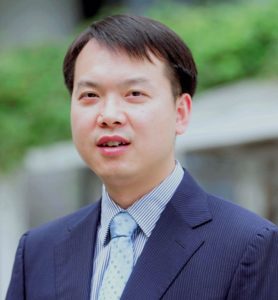 |
Dangyuan Lei is a professor with the Department of Materials Science and Engineering in the City University of Hong Kong. He received his BSc, MPhil and PhD degrees all in Physics from Northwest University, Chinese University of Hong Kong and Imperial College London in 2005, 2007 and 2011, respectively. His research interest centres on plasmonic nanophotonics and low-dimensional quantum optical materials, with particular interest in the nanoscale cavity-matter interaction and applications in miniaturized photonic and optoelectronic devices for on-chip optical sensing and imaging, quantum information processing and encryption as well as energy harvesting, conversion, storage and saving. He has co-authored 240 publications, received 14100 citations and an h-index of 67, and given 8 keynote speeches and >110 invited talks. His major publications include 10 Nature Communications, 2 Science Advances, 1 Nature Photonics, 1 Nature Chemistry, 6 Light: Science & Applications, 4 Physical Review Letters, 26 Nano Letters and ACS Nano, and 28 Advanced (Functional/Energy/Optical) Materials etc. His work on multiphoton-pumped, ultralow-threshold perovskite lasing was selected as one the Top 50 Most Read Nature Communications Articles of 2020 in Physics, and his co-invention of a smart radiative cooling coating was highlighted as “Editor’s Choice” of Science (2020). |
You were previously featured in the Emerging Investigators collection – how has your research progressed over the last 10 years?
Over the last 10 years, my research has expanded from plasmonics nanophotonics to nonlinear nanophotonics, quantum plasmonics, low-dimensional semiconductor optoelectronics, and radiative cooling based thermal management.
What inspired you to pursue a career in your field of research?
Scientific curiosity and technological innovation.
Read Dangyuan Lei’s contribution to the collection:
Fluorescence-enhanced light-blue bilayer radiative cooling coatings
J. Mater. Chem. A, 2024, 12, 20921-20926, DOI: 10.1039/D4TA03045A
**
Zhichuan J. Xu, Nanyang Technological University
| Zhichuan is a President’s Chair Professor in the School of Materials Science and Engineering, Nanyang Technological University (NTU) and a Fellow of the Academy of Engineering, Singapore. He serves as the director of the Maritime Energy & Sustainable Development Centre of Excellence and the director of the Centre of Advanced Catalysis Science and Technology, NTU. He received his PhD degree in Electroanalytical Chemistry and B.S. degree in Chemistry from Lanzhou University, China. His PhD training was received in Lanzhou University, Institute of Physics, CAS, and Brown University. He worked in State University of New York at Binghamton as a Research Associate and then in Massachusetts Institute of Technology as a Postdoctoral Researcher. Dr. Xu has received several awards such as Chun-Tsung Endowment Outstanding Contribution Award – Excellent Scholar at 2018 and the Zhaowu Tian Prize for Energy Electrochemistry by International Society of Electrochemistry (ISE) in 2019. He was awarded Fellow of Royal Society of Chemistry (FRSC) in 2017. Dr. Xu is a Highly Cited Researcher by Clarivate Analytics, Web of Science since 2018. He teaches materials for hydrogen fuel and other sustainability related courses. His research interests include hydrogen production, storage, and utilization, and other small molecule (electro)catalysis. He also works on battery materials and materials recycling/reuse. |
 |
What inspired you to pursue a career in your specific field of research?
The interest in renewable energy and sustainability. The climate change has been making the negative impact to our living environment and it will be more significant in the coming years. I consider it a privilege to study the knowledge and techniques in renewable energy and sustainable development. This career has given me the opportunity to train and inspire young talent in this field and to contribute, even in small ways, to advancing these critical technologies. This work is my greatest source of inspiration.
What advice would you give to current Emerging Investigators who hope to make a significant impact in their respective fields over the next 10 years?
Times have certainly changed. Newton’s apple tree now has few apples left; it’s much harder to make ground-breaking contributions in fundamental science today than it was in the past. In my view, a passion for research is our greatest support. It’s also worth noting a shift from fundamental science to applied science and engineering design, with researchers now expected to play a more active role in technology development.
Discover Zhichuan J. Xu’s Perspective article:
Pivotal role of the Pourbaix diagram in electrocatalysis
J. Mater. Chem. A, 2024, 12, 27974-27978, DOI: 10.1039/D4TA05476H
**
Christian Müller, Chalmers University of Technology
 |
Christian holds a M.Sci. and B.A. in Natural Sciences from Cambridge University (2004) as well as a Dr. Sc. in Materials Science from the Eidgenössische Technische Hochschule (ETH) Zürich (2008). After a one-year research fellowship at the Institut de Ciència de Materials de Barcelona (ICMAB-CSIC) followed by a post-doctoral project at Linköpings universitet, Christian started working at Chalmers in 2012 – first as an assistant and then an associate professor. He has been a full professor since 2017. His research interests include the physical chemistry of organic semiconductors, polymer blends and composites, and their use in the fields of wearable electronics and energy technology. |
What advice would you give to current Emerging Investigators who hope to make a significant impact in their respective fields over the next 10 years?
Our world is changing rapidly and today we face many challenges such as global warming and climate change that have an unprecedented urgency. Chose topics that you think are important, develop your research with care, but do not rush. Seek discussions with colleagues outside your discipline to broaden your perspective.
Read Christian Müller’s publication:
A surface passivated fluorinated polymer nanocomposite for carbon monoxide resistant plasmonic hydrogen sensing
J. Mater. Chem. A, 2024,12, 7906-7915, DOI: 10.1039/D4TA00055B
**
Meidan Ye, Xiamen University
| Meidan Ye is a Professor in the Department of Physics, College of Physical Science and Technology at Xiamen University. She received her PhD in Physical Chemistry from the College of Chemistry and Chemical Engineering at Xiamen University in 2014. Her research interests are advanced functional materials for energy and sensing applications (i.e., perovskite solar cells, nanogenerators, supercapacitors, lithium/sodium batteries and flexible sensors). |
 |
What inspired you to pursue a career in your specific field of research?
It is the curiosity and exploration of unknown things in scientific research, such as the correlation between the microstructures and macroscopic properties of functional materials.
You were previously featured in the Emerging Investigators collection – how has your research progressed over the last 10 years?
In the past decade, I have expanded the types and application scope of functional materials in my research, involving metal compounds, two-dimensional materials, organic polymers, etc., exploring their composite strategies, and developing their potential applications in multiple fields. These efforts largely enrich my knowledge and consistently spark my passion for scientific research.
Read Meidan Ye’s article from the collection:
Synergetic modulation on multiple transition metals enables NiCoxZnyP(1+x+y)/2 microspheres for efficient lithium-ion storage
J. Mater. Chem. A, 2024, Advance Article, DOI: 10.1039/D4TA05991C
**
Kenneth Hanson, Florida State University
 |
Kenneth Hanson received a B.S. in Chemistry from Saint Cloud State University (2005), his Ph.D. from the University of Southern California (2010), followed by an appointment as a postdoctoral scholar at the University of North Carolina at Chapel Hill (2010–2013). His independent research career began in 2013 at Florida State University as a member of the Department of Chemistry & Biochemistry. His current research interests include the design, synthesis, and characterization of photoactive molecules/materials with particular emphasis on manipulating excited state dynamics and energy/electron-transfer at organic–inorganic interfaces. |
What inspired you to pursue a career in your specific field of research?
In the summer of my junior year of undergrad, I was in an NSF REU program where I learned about the inorganic photochemical research of Dr. Mark Thompson at the University of Southern California (who later became my graduate research advisor). I fell in love with the idea of using molecular structure to control light matter interactions and the importance of their application in solar energy conversion, light emitting diodes, and much more.
You were previously featured in the Emerging Investigators collection – how has your research progressed over the last 10 years?
Our initial research efforts largely focused on improving our ability to harness molecular photon upconversion in a solar cell. While we made notable progress, our research kept revealing certain fundamental limitations in the molecules/materials. In particular, structure, which is critical to energy transfer and upconversion processes, was largely unknown in metal ion-linked multilayer assemblies. For the last several years, our attention shifted away from increasing photocurrents and more towards using spectroscopic tools to determine the structure of these interfacial assemblies. The goal being first to understand and then to control these structures not only for upconversion solar cells but for any application that would benefit from strategic multimolecular assembly.
What advice would you give to current Emerging Investigators who hope to make a significant impact in their respective fields over the next 10 years?
Pay attention to the experiments that “don’t work”. Often, we embark on research with particular goals/hypotheses in mind. If the outcomes don’t agree with expectation, it is easy to brush it off as a failure. While sometimes those unexpected outcomes are the result of user error or instrument anomalies, sometimes they are a hint at something entirely unexpected and new. It is often those moments of “failure” that reveal new avenues of pursuit and unforeseen science/applications.
What were the biggest challenges you have faced over the last 10 years as your career progressed?
Balancing research, teaching, service, and non-work life is a challenge for everyone. Equally challenging was recognizing and coming to terms with it being impossible to do it all. Instead, we constantly struggle to pick and choose our battles according to our life goals and priorities. Sometimes that means abandoning beloved projects, working extra hours, traveling less/more, taking much needed vacations, saying no to additional responsibilities/committee work/reviews/etc.
Discover Kenneth Hanson’s latest work:
Structural insights to metal ion linked multilayers on metal oxide surfaces via energy transfer and polarized ATR measurements
J. Mater. Chem. A, 2024,12, 28882-28891, DOI: 10.1039/D4TA05156D
**
Tung-Chun (John) Lee, Institute for Materials Discovery (IMD), University College London
 |
Tung-Chun Lee is the Deputy Director of the Institute for Materials Discovery and an Associate Professor in Nanomaterials Chemistry (h-index: 30, total citation: 5000+). He received his BSc in Chemistry from University of Hong Kong in 2005 and his PhD in Chemistry from University of Cambridge in 2012. He was a Post-doctoral Fellow at the Max Planck Institute for Intelligent Systems in Stuttgart from 2011 to 2014. In 2014 he joined University College London as a Lecturer and started his independent academic career. His research interests include nanomaterials, nanochemistry, supramolecular chemistry, surface-enhanced Raman spectroscopy and molecular modelling, all of which show potential applications in sensing, drug delivery, photovoltaic and catalysis. He has acted as the primary supervisor of 79 researchers in total, including 4 PDRA, 18 PhD, and 57 MSc. To date, he has 67 publications in high-impact journals, featuring Nat. Chem., Nat. Mater., Nat. Commun., Adv. Mater., Nano Lett., ACS Nano and Angew. Chem. Other academic achievements include 2 patents (1 licenced by industry), 1 book, 2 book chapters and 14 journal covers. He is a regular reviewer of journals such as Nat. Commun., Small, Nanoscale and ChemComm. |
What were the biggest challenges you have faced over the last 10 years as your career progressed?
The COVID-19 pandemic was a truly tough period of time for many, especially early-career academics, and I was of no exception. My son was born a few months before the pandemic swept through the globe, making it a double challenge. The entire UK went into lockdown a few weeks after I returned to work from paternity leave, and nobody knew when businesses could reopen. During this time of uncertainty, it was a real challenge to stay on top of things, let alone planning ahead and maintaining research productivity. From hindsight, I feel so blessed to have a great team of postdocs, PhDs and MScs who were remarkably resilient, persistent and creative. With contribution from everybody in my research group, we successfully translated the majority of lab-based activities into tasks that can be performed remotely, e.g. data analysis, molecular modelling and literature search. It is worth mentioning that the core part of the two-step partial least squares regression-multilayer perceptron (PLSR-MLP) machine learning algorithm reported in our recent paper in the “Celebrating 10 years of Emerging Investigators collection” [J. Mater. Chem. B, 2024, 12, 10563-10572.] was developed during the lockdown. In addition to remotely keeping members of my group together and motivated, I was also appointed as the “Connected Learning Lead” of my department to coordinate the efforts on transitioning our educational operating model to fully online. This is a challenging role that called for huge commitment and involved a steep learning curve in digital technologies.
As the post-pandemic era unfolds and everybody is adapting to the new normal, I still feel surreal when reflecting on this bizarre and tough period of time. My son is now a little young chap in the infant school, curious about nature and the world around him. I feel fortunate that I am sharing the same curiosity with him, and perhaps it is such curiosity that empowered me to see through the past challenges and to navigate into the future unknown!
Read Tung-Chun Lee’s article:
Quantitative multiplexing of uric acid and creatinine using polydisperse plasmonic nanoparticles enabled by electrochemical-SERS and machine learning
J. Mater. Chem. B, 2024,12, 10563-10572, DOI: 10.1039/D4TB01552E
**
Annette Andrieu-Brunsen, Technische Universität Darmstadt
| Annette Andrieu-Brunsen studied Chemistry at the Philipps-Universität Marburg (Germany). She got her PhD in 2010 from the Johannes-Gutenberg Universität and the Max-Planck-Institute for Polymer Research in Mainz (Germany) working with Prof. Knoll and being funded by the Studienstiftung des Deutschen Volkes. She has been working together with Prof. Soler-Illia and Prof. Azzaroni at the CNEA in Buenos Aires (Argentina) before being appointed as the Assistant Professor at the TU-Darmstadt (Germany). In 2018 she was appointed as an associate professor at TU-Darmstadt and in 2020 she was appointed as a full professor at TU Darmstadt (Germany). She received several awards and was granted an ERC StG in 2018. Her research interest focuses on functional nanopore and nanopore transport design. This includes polymer functionalization of spatially confined nanopores, nanopore wetting and charge control, innovative nanoporous material and architecture design as well as automated design procedures. |
 |
What inspired you to pursue a career in your specific field of research?
During my postdoc in the group of Prof. Soler-Illia and Prof. Azzaroni in Argentina I realized that polymerization in confined space of nanopores and confinement-controlled nanopore properties is a field which had at that time and still has today a lot of unsolved questions. In addition, it is a very interdisciplinary topic which I liked and I liked to work independently. I had the feeling that my expertise related to polymerization as well as related to light-based characterization techniques could for example open new approaches of porous material functionalization. One idea was to use surface plasmons to initiate photopolymerizations to work on synthesis precision and automation at small scales. These very first thoughts and the support of my scientific surrounding and mentors in mind, a very interesting assistant professor position was crossing my way in the right moment. Otherwise, I may have ended up in another career path.
You were previously featured in the Emerging Investigators collection – how has your research progressed over the last 10 years?
I started functionalizing nanopores with responsive polymers using classical polymerizations to gate ionic nanopore accessibility. My research progressed on one hand towards automated and local polymer placement in confinement for example using light from surface plasmons or microscopy techniques to write polymers or to print porous materials aiming for control along all length scales. Furthermore, my research progressed in understanding confinement effects on nanopore properties. Finally, our research on mesopores in complex hierarchical materials led to application relevant and patented technology. In the near future, my research on how to understand and use confinement and how to automate and improve functionalization and hierarchical material design along all length scales will continue. In addition, I expect the material system design to increase in complexity for example integrating nanopore gating in complex material systems adding control on time scales.
What advice would you give to current Emerging Investigators who hope to make a significant impact in their respective fields over the next 10 years?
Always follow your interests and your vision of your life. Discuss your ideas and plans with colleagues at different career levels already in an early state. If you have identified your unique field of research, follow your vision but stay open minded. Use the options that appear along the way and use failure to improve. Life may write the better story book than you had planned.
Read Annette Andrieu-Brunsen’s publication:
Grafting and controlled release of antimicrobial peptides from mesoporous silica
J. Mater. Chem. B, 2024,12, 8167-8180, DOI: 10.1039/D4TB00752B
**
Roey J. Amir, Tel Aviv University
 |
Prof. Roey J. Amir, born and raised in Tel Aviv, began his academic journey after backpacking through North and South America. He earned his B.Sc. in Chemistry at Tel Aviv University (TAU), where he also completed his M.Sc. and Ph.D. under the mentorship of Prof. Doron Shabat. After conducting postdoctoral research with Prof. Craig Hawker at UCSB, Prof. Amir returned to TAU as a faculty member in the School of Chemistry in 2012. Prof. Amir’s research focuses on the design and synthesis of dendritic amphiphiles, with an emphasis on stimuli-responsive systems. His work bridges organic chemistry and nanoscience, exploring applications such as polymeric nanoreactors for green chemistry, advanced drug delivery systems, and innovative materials. By studying the dynamic behavior of self-assembled systems in response to stimuli like enzymes, Prof. Amir’s research advances both fundamental science and practical technologies. Since 2019, Prof. Amir has served as the academic head of the TAU ADAMA Center for Novel Delivery Systems in Crop Protection. The center trains graduate students and supports innovative research aimed at creating sustainable agricultural technologies. Its work focuses on developing advanced materials for the efficient and environmentally friendly delivery of agrochemicals, addressing global challenges in food security and sustainability. |
What inspired you to pursue a career in your specific field of research?
The ability of various natural systems—ranging from proteins to viruses and more complex entities—to respond to changes in their environment and adapt their structure and function accordingly is remarkable. Inspired by such systems, I was drawn to the field of stimuli-responsive polymers.
You were previously featured in the Emerging Investigators collection – how has your research progressed over the last 10 years?
Over the past 10 years, my group has transitioned from fundamental studies on the stability-responsiveness barrier—arguably the biggest challenge in the field of enzyme-responsive assemblies—to developing solutions to overcome this barrier. We achieved this by designing systems capable of responding to multiple stimuli, offering both stability and a high degree of responsiveness. Furthermore, leveraging the fundamental knowledge we have gained, we are now able to design systems that undergo cascades of transitions between multiple mesophases, bringing us closer to emulating the inspiring and intricate abilities of natural systems.
What advice would you give to current Emerging Investigators who hope to make a significant impact in their respective fields over the next 10 years?
Follow your dreams and approach challenges by looking deeper into the problem at its core, while keeping your mind open. Sometimes, innovative and exciting directions can emerge from the simplest control experiments.
Discover Roey Amir’s research:
Hydrophobicity as a tool for programming sequential mesophase transitions of enzyme-responsive polymeric amphiphiles
J. Mater. Chem. B, 2024, Advance Article, DOI: 10.1039/D4TB01587H
**
Chad Risko, University of Kentucky
 |
Chad Risko is the John C. Hubbard Professor of Chemistry in the Department of Chemistry and an affiliated faculty member of the Center for Applied Energy Research (CAER) at the University of Kentucky. Chad received his PhD under the direction of Professor Jean-Luc Brédas at the Georgia Institute of Technology and was a postdoctoral researcher with Professors Mark Ratner and Tobin Marks at Northwestern University. Research in the Risko laboratory blends principles from organic and physical chemistry, condensed-matter physics, materials and polymer science, and data science and artificial intelligence/machine learning to develop computational materials chemistry approaches to better understand and design materials for advanced electronics and power generation and storage applications. |
You were previously featured in the Emerging Investigators collection – how has your research progressed over the last 10 years?
In many ways, 10 years ago feels like a different time, though probably not much has changed in the ways that we fundamentally think about our science. Research in our laboratory still seeks to provide fundamental and multiscale physicochemical insights into materials properties. Moreover, we continue to have the fantastic fortune to work with synthetic and experimental collaborators that bring us challenging materials problems to consider. Addressing these challenges has dared us, though, to expand our modeling expertise and to broaden our insights as to why materials may function, or fail. At the same time, advances in computer hardware and software allow us to tackle bigger, more complex problems. The rapid expansion of “big data” and associated data science techniques coupled with the explosion of artificial intelligence, with particular emphasis on machine learning, in materials chemistry have provided additional opportunities to pursue new science and ask new questions, including how to ensure democratized access to these advances and what philosophical considerations do we need to be mindful of as we follow our pursuits.
What advice would you give to current Emerging Investigators who hope to make a significant impact in their respective fields over the next 10 years?
My advice is simple: Follow the science that excites you, work with the people that challenge you, yet are kind, and remember that the impact of your work is so much more than another publication.
Read Chad Risko’s article:
Temperature-dependent stress–strain behavior of amorphous and crystalline P3HT
J. Mater. Chem. C, 2024, Advance Article, DOI: 10.1039/D4TC03618B
**
Henrik Pedersen, Linköping University
| Henrik Pedersen received his M.Sc. in Chemistry in 2004 and his Ph.D. in Materials Science in 2008, both from Linköping university in Sweden. After a stint as industrial researcher at Sandvik Tooling Research and Development center in Stockholm, Sweden, he returned to academia and is today Professor of Inorganic Chemistry at Linköping university. He has during the past almost 20 years been exploring CVD for electronic materials, hard coatings, and neutron detectors. His research is focused on understanding and developing new and better chemical vapor deposition methods with controlled surface chemistry. |
 |
You were previously featured in the Emerging Investigators collection – how has your research progressed over the last 10 years?
Since that paper, I have started up research on another form of CVD, atomic layer deposition (ALD). This has opened up for a lot of new research where we use various forms of in situ techniques to study chemistry, primarily surface chemistry, in real time. We have also explored new precursor molecules that we have developed and new ways to use plasmas in CVD – here we try to use the free electrons in the plasma for surface redox reactions.
What advice would you give to current Emerging Investigators who hope to make a significant impact in their respective fields over the next 10 years?
Dare to think big, be a bit crazy and do not be afraid to fail. Also, see the constant writing of grant applications as time you invest to sharpen your ideas.
What were the biggest challenges you have faced over the last 10 years as your career progressed?
As with most of academia, finding money and good people – and finding these at the same time.
Discover Henrik Pedersen’s research:
Surface chemistry in atomic layer deposition of AlN thin films from Al(CH3)3 and NH3 studied by mass spectrometry
J. Mater. Chem. C, 2024, 12,12818-12824, DOI: 10.1039/D4TC01867B
**
Oana D. Jurchescu, Wake Forest University
 |
Oana D. Jurchescu is a Baker Professor of Physics at Wake Forest University (WFU), USA and a founding member of the Center for Functional Materials at WFU. She was elected a fellow of the American Physical Society (APS) and of the Royal Society of Chemistry (RSC). Jurchescu earned her BS degree in Physics and Chemistry from the West University of Timisoara, Romania in 2001 and her PhD from University of Groningen, the Netherlands, in 2006. She was a postdoctoral researcher at the National Institute of Standards and Technology (NIST), USA, until 2009, when she joined WFU. Jurchescu’s research focuses on charge transport in organic and hybrid semiconductors, device physics, and semiconductor processing. She has received numerous awards for her research and teaching, including the National Science Foundation (NSF) CAREER Award, the NSF Special Creativity Award, and the Pegram Award from APS. Jurchescu was the was co-organizer of several Materials Research Society (MRS), Society of Photo-Optical Instrumentation Engineers (SPIE) and APS Symposia and is an Associate Editor for Journal of Materials Chemistry C, Materials Advances, and of Science Advances. She serves on the advisory boards of Chemical Physics Reviews, Organic Electronics, and Journal of Physics: Materials. |
What advice would you give to current Emerging Investigators who hope to make a significant impact in their respective fields over the next 10 years?
There’s no single recipe for success in research, and every journey is unique. But reflecting on my own experience over the past decade, since I have been featured in the JMCC Emerging Investigators special issue, here are a few lessons I’ve learned.
The research landscape changes rapidly. Remain curious, embrace lifelong learning, and be open to shifting your research focus as needed. Not every project will be a home run, but view setbacks as learning opportunities and keep pushing boundaries, embrace risk and don’t fear failure. In the process, always uphold the highest ethical standards. This not only builds your reputation but also contributes to the overall integrity of the scientific community.
Some of my most impactful work has sprung from partnerships with those who challenged my thinking and brought complementary skills to the table. So, my advice is to invest time in building relationships, both within and outside your immediate field, cultivate deep and lasting collaborations.
Put effort into becoming a versatile communicator. Learn how to share your work effectively, how to tailor your message to resonate with different audiences, whether it’s fellow scientists, policymakers, or the general public. This adaptability ensures that your research reaches its full potential for both impact and understanding.
And perhaps the most important advice of all: prioritize your wellbeing and the wellbeing of those around you. This includes your research group members, your family, and yourself. Science is a marathon, not a sprint, and it requires resilience and sustained effort. Remember to celebrate small victories, consciously cultivate a supportive environment, find mentors and colleagues who support you, and maintain a healthy work-life balance. It might seem counterintuitive, but investing in wellbeing is an investment in your long-term success. A happy and healthy scientist is a productive scientist.
Find out more about Oana Jurchescu’s latest research:
High-performance n-type polymer field-effect transistors with exceptional stability
J. Mater. Chem. C, 2024,12, 17089-17098, DOI: 10.1039/D4TC03294B
**
Markus Gallei, Saarland University
| Markus Gallei holds the Chair of Polymer Chemistry (W3) at the Saarland University. He completed his doctorate in the field of functional metallopolymers at the German Institute for Polymers (DKI) in Darmstadt and at the TU Darmstadt under the supervision of Professor Matthias Rehahn. In 2011, he was a postdoc at the Helmholtz Helmholtz Center Geesthacht in the group of Professor Volker Abetz and worked with membranes based on stimuli-responsive polymers. His research deals with the design and processing of intelligent polymer architectures, polymer particles, and metallopolymers for applications in the fields of sensors, structurally colored responsive opal films, surface coatings, switchable membranes, and porous separation systems. Since 2021, he has also been the director of SAARENE (the Saarland Center of Energy Materials and Sustainability). |
 |
What inspired you to pursue a career in your specific field of research?
The combination of basic research and the production of intelligent materials has always inspired me. I have always been fascinated by the possibility of designing microscopic molecular building blocks and developing them into useful applications for society. Chemistry can help in almost all relevant areas of our everyday lives, and it is worth working with a team that has the highest level of motivation.
You were previously featured in the Emerging Investigators collection – how has your research progressed over the last 10 years?
The opportunity to highlight my first papers in such specialized volumes of renowned journals enabled me to build up a network with national and international researchers. Especially in the fields of sustainability and innovation, it is impossible to work completely alone. Gaining a high level of visibility is, of course, essential in realizing research strategies in the long term.
What advice would you give to current Emerging Investigators who hope to make a significant impact in their respective fields over the next 10 years?
When starting, it is always important to believe in your own idea, and even if there may be some “pitfalls” at the beginning, every idea and every path opens up at least five new routes to go for. You should always follow a few additional paths in order to have several “footholds”. Of course, focusing on a favorite topic is essential, but sometimes you also need backup scenarios. You shouldn’t lose sight of the big picture, and you should be prepared to take somewhat unconventional – perhaps even completely innovative and high-risk – paths for your research ideas.
What were the biggest challenges you have faced over the last 10 years as your career progressed?
In my opinion, one of the most important but also most difficult things is to always keep your own motivation high and to pass this on to your scientific environment. Furthermore, it is sometimes not easy to convince the scientific environment that together is sometimes more and to work together in the form of cooperation and coordinated programs instead of competing with each other. Unfortunately, sometimes, it is not possible to convince researchers of this due to various sensitivities. The trick is to show that science only works together and that sometimes personal interests should be subordinated to the bigger picture.
Read Markus Gallei’s article:
Metallopolymer-based block copolymers for perfluorinated substances (PFAS) and ion removal
J. Mater. Chem. C, 2024, Advance Article, DOI: 10.1039/D4TC03546A
**
Kyle Plunkett, Southern Illinois University
 |
Kyle was born in Yakima, WA and grew up in Moxee, WA among the hop fields and apple orchards. He moved to Corsicana, TX for middle and high school before attending Texas A&M University – College Station where he wholeheartedly followed Aggie football, studied Chemistry, and graduated with a B.S. degree in 2000. He obtained his Ph.D. degree from the University of Illinois at Urbana-Champaign in the lab of Professor Jeffrey S. Moore where he studied hydrogels integration with biomacromolecules. After graduation in 2005, he moved to Mainz, Germany as an Alexander von Humboldt postdoctoral fellow and worked at the Max Planck Institute for Polymer Research with Professor Klaus Müllen. He returned to the United States in 2006 and worked with Professor Colin Nuckolls at Columbia University in New York City. He joined Southern Illinois University department of chemistry in 2010 and continues to work on organic electronic materials and new supramolecular system. Kyle enjoys travelling, spending time with family, dabbling in new technologies (3d printing, AR/VR, etc.), doing home repair, driving/fixing his 1979 International Scout II, and brewing beer (guessing it was in his roots from growing up in the hop fields of Moxee). |
What inspired you to pursue a career in your specific field of research?
I was inspired by my wonderful experiences at Texas A&M University where I learned organic chemistry from the lectures of Professor John L. Hogg and applied some of those concepts in making new polymers in the research lab of Professor David E. Bergbreiter. Organic chemistry enables and reward creativity, and that is something I wanted to continue in my career.
You were previously featured in the Emerging Investigators collection – how has your research progressed over the last 10 years?
My early independent research heavily focused on new polycyclic aromatic hydrocarbons and their employment in organic electronic devices. Over the past five years, we have shifted our primary research direction to understand supramolecular chemistry from the secondary bonding in hypervalent iodine systems. While the specific goals have changed, the fundamental physical organic chemistry concepts continue to be a driving force for material design.
What advice would you give to current Emerging Investigators who hope to make a significant impact in their respective fields over the next 10 years?
Keep working on the research that you find rewarding. Give ample space to your senior students to make their own discoveries that intersect with your main research themes. These fresh ideas and paths can drive our research in rewarding directions.
What were the biggest challenges you have faced over the last 10 years as your career progressed?
As I have moved from a junior to senior faculty member, I have found the balancing of service and research to become more challenging. We must remember to prioritize the aspects of our jobs that are rewarding (for me research), while still providing the leadership and service to the department and university that sheltered us as junior faculty.
Discover Kyle Plunkett’s article:
Pi-extended hypervalent iodine macrocycles and their supramolecular assembly with Buckminsterfullerene
J. Mater. Chem. C, 2024, Advance Article, DOI: 10.1039/D4TC04251D
**
Tsuyoshi Michinobu, Institute of Science Tokyo
| Tsuyoshi Michinobu studied chemistry at Waseda University and received his PhD degree with Prof. H. Nishide in 2003. After postdoctoral studies at ETH Zurich with Prof. F. Diederich and at the National Institute for Materials Science (NIMS) with Prof. K. Ariga, he joined Tokyo University of Agriculture and Technology as a Research Associate in 2006. He moved to Tokyo Institute of Technology as an Assistant Professor in 2008 and was promoted to an Associate Professor in 2012 and to a Professor in 2023. He is currently a Professor in the Department of Materials Science and Engineering at Institute of Science Tokyo (previously Tokyo Institute of Technology). His research focuses on the synthesis and electronic device applications of semiconducting polymers. He developed a series of high-mobility organic semiconducting polymers and applied them to high-performance transistors and photovoltaic devices. Recently, near-infrared light-emitting properties of these polymers were also studied. He has published more than 220 papers with H-index of 50 (Google scholar). He received SPSJ Showa Denko Materials Award (2020) and the Award of The Society of Fiber Science and Technology, Japan (2024). |
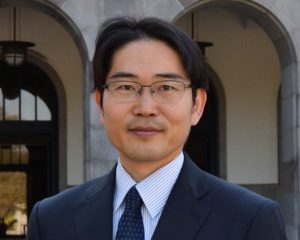 |
What inspired you to pursue a career in your specific field of research?
When I was a graduate student, the Nobel Prize in Chemistry was awarded for the development of conducting polymers. This motivated me to pursue the academic career in the same field.
You were previously featured in the Emerging Investigators collection – how has your research progressed over the last 10 years?
I have mainly worked on polymer transistors. The main target was to improve charge carrier mobilities 10 years ago, but recently I feel there has been a shift towards applications, such as sensors using organic electrochemical transistors and synaptic transistors.
What were the biggest challenges you have faced over the last 10 years as your career progressed?
The biggest challenge was how to work during a pandemic. I think that new ways of doing research have emerged because we can now do a lot of things online. I think these big changes could happen in the near future and we have to adapt to them.
Read Tsuyoshi Michinobu’s publication:
A facile membraneless method for detecting alkali-metal cations using organic electrochemical transistors
J. Mater. Chem. C, 2024, Advance Article, DOI: 10.1039/D4TC03047H
**
We hope you enjoy reading this excellent selection of articles.





















